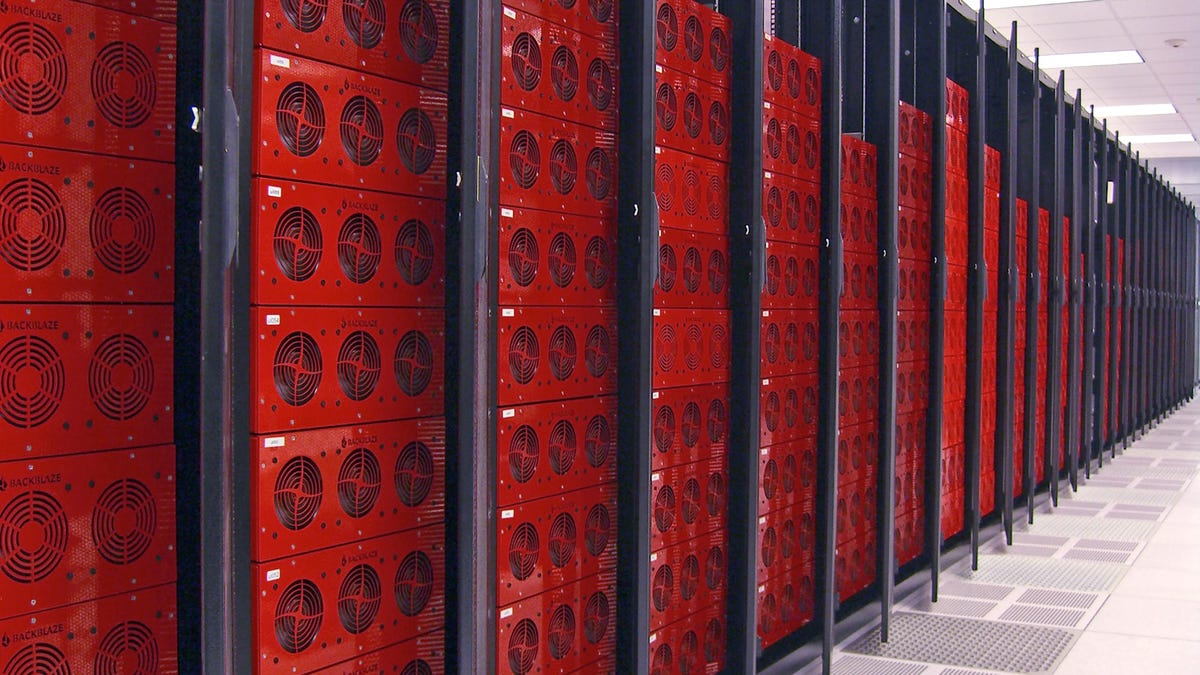Parsimonious Backblaze takes $5 million in funding
The company turned down other investment offers, but accepted $5 million from TMT Investments so it could expand its online backup business without losing control.

BackBlaze, an online backup company that for the last five years bootstrapped itself with its own funding, has taken a $5 million investment from U.K.-based TMT Investments to speed its growth.
The funding will be used for advertising, promotional partnerships, and hiring engineers to bring new features such as an iOS app to market, Chief Executive Gleb Budman said.
The 16-employee company, founded in 2007 ago and headquartered in San Mateo, Calif., has been profitable with plans that cost $5 a month, $50 for a year, or $95 for two years. TMT said in its announcement today that Backblaze had profit of $202,471 before taxes for 2011.
Backblaze competes with better established rivals such as Mozy and Carbonite and with synchronization services such as Dropbox, Box, Google Drive, and Microsoft SkyDrive, but it distinguishes itself by offering unlimited data-storage capacity. That's unusual, but not unique; Crashplan and AltDrive, for example, also offer flat-rate unlimited plans.
The company has had lots of chances to bring in outside funding, but until now has decided against it so it can preserve its independence, executive team, and focus on pleasing customers rather than venture capitalists. "Over the last five years, we've had probably 50 VCs who contacted us," Budman said.
Despite higher offers, the company decided to take a relatively small sum of money -- $2.5 million now and another $2.5 million a year from now -- so that it can expect to be profitable when the new funding is used up.
"By the end of the next 12 months, we don't need to raise again, because the company will be profitable at that size," Budman said. At that point, the company likely will have expanded to 25 employees, he said.
The style continues the parsimonious ethos of the company, which earlier in its history was evicted for running some of its operations from an apartment building.
VC investments typically dilute both ownership, as founders sell a significant share of the company to outsiders, and management, as new investors get a seat on the board. TMT only gets to be an observer on the board, though, not a full seat, Budman said.
Depending on how the company fares, TMT will end up with 13.3 percent to 19 percent stake in the company at the end of the two-phase investment, meaning BackBlaze will be valued at between $37.5 million and $26 million, respectively. "If we do better, they get less," Budman said.
With the funding, Budman said, Backblaze plans to:
• Sign more partnerships, such as one for online backup on new Vizio PCs, that require investments up front and that mean payments from partners can arrive months after customers put new demand on storage capacity.
• Increase advertising, starting with small tests such as Google search ads and then expanding depending on what works best. Backblaze thus far has relied on word of mouth.
• Expand to improve services for businesses, not just individuals.
• Develop mobile applications that let customers see their files. iOS devices will come first, with Android to follow, Budman said.
Backblaze stores 40 petabytes of customer data, with 100 million new files arriving daily, the company said. Customers used it to recover 600 million files in 2011.
Competitor Mozy dropped its unlimited backup plans, saying it wasn't supportable as a business and predicting others would be forced to follow suit. Budman disagrees:
"That was an interesting PR spin, but it wasn't fundamentally true. The reason they said they abandoned unlimited plans is because people are storing more data. Duh! People have stored more data since the beginning of time. The reality is people have been storing about 40 percent more data year over year for as long as we can find data for. That doesn't seem to be changing. At the same time, drive prices are dropping 40 percent a year on average, with the exception of the [hard drive price] increases from Thailand flooding.
And as cloud service providers, if we do well, we get benefits end-users don't get. For us that also means density increases: we get more drives into a single server, more servers into rack. We more [storage] space per [electrical] power, more space per person who manages it. Our costs, if we do our jobs well, go down faster than end-user costs go down.
Competitors are expanding too -- Dropbox just raised a colossal $250 million -- but Backblaze isn't changing its direction.
"Our goal is not to outspend people," Budman said, adding that taking a large amount of money would necessitate a big change in the startup's strategy. "Our goal is to build the best unlimited backup service we can. We can be more lean by staying focused."

